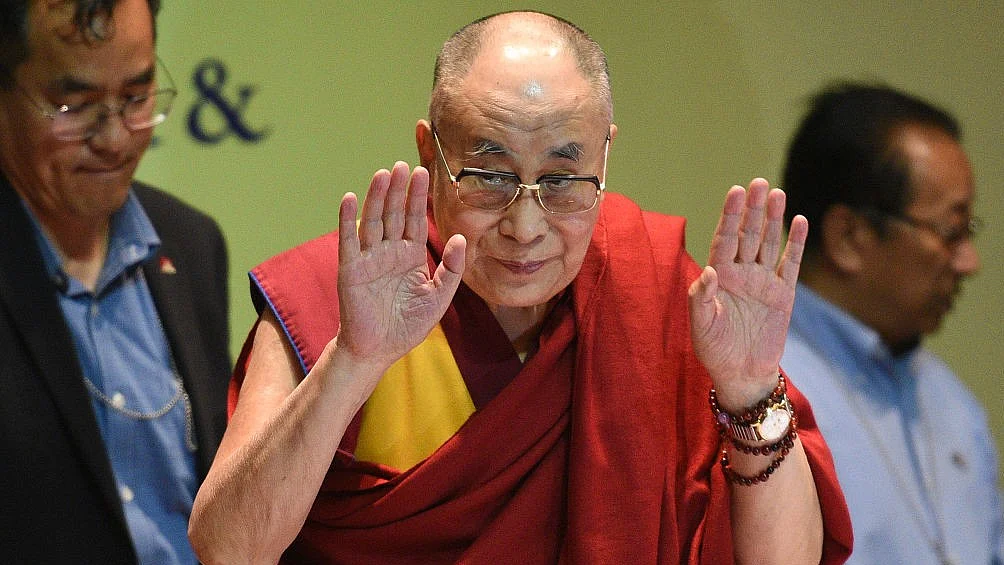Why Dalai Lama was wrong on Jawaharlal Nehru and Partition
Even as the Dalai Lama apologised on Friday for his remark on Jawaharlal Nehru and Partition, historians weighed into the controversy and pointed out why the Tibetan spiritual leader was wrong

Following public outrage over his casual comment that the partition of India could have been avoided if India’s first Prime Minister Jawaharlal Nehru had not been ‘self-centred’, the Tibetan spiritual leader the Dalai Lama on Friday, August 10 issued an apology ‘if’ he had said something wrong.
News agency ANI quoted the Dalai Lama as saying, “My statement has created controversy, if I said something wrong I apologise: Dalai Lama on his statement, "Mahatma Gandhi ji was very much willing to give Prime Ministership to Jinnah but Pandit Nehru refused."
The Dalai Lama, while speaking in Goa, had pointed out that Mahatma Gandhi ‘wanted’ Muhammad Ali Jinnah to be the Prime Minister of an undivided India, but the move was opposed by Nehru.
The Dalai Lama, born in 1935, was barely 12 years old when India became free in 1947. And he sought asylum in India at the age of 24 and since 1959 he has been living in Dharamshala in Himachal Pradesh.
But serious scholars, historians and academics were quick to contradict the Dalai Lama. While Mahatma Gandhi, they said, had indeed offered to make Jinnah the first Prime Minister of India, the condition was that he would give up the demand for a Muslim nation. And Jinnah had rejected the overture publicly every time.
What is more, Jinnah and the Muslim League would have been in a minority in the central legislature, which was clearly something that was not acceptable to them.
Patrick French, historian and Professor for the Public Understanding of Humanities at Ahmedabad University, tweeted on Friday to debunk what the Dalai Lama had insinuated.
“I am sorry the Dalai Lama is repeating this nonsense. Under Gandhi's proposal, Jinnah would have been subordinate to a Congress majority in the central legislature. i.e. it was a trap.”
Former Union Minister Manish Tewari also weighed in and referred to Mountbatten Papers to show why the Dalai Lama was wrong. He tweeted saying, “With great respect his Holiness Dalai Lama is wrong that Nehru was self-centered and therefore opposed Gandhi’s suggestion of making Jinnah Prime Minister of India. The historical record suggests otherwise. May be it would be worth his while to peruse this link.”
The Mountbatten papers record the meeting between Mahatma Gandhi and Mountbatten as follows: “Mr Gandhi asked if he might take a walk round the Viceroy's garden at 9 o' clock, which he did accompanied by Rajkumari Amrit Kaur. Her Excellency went to meet him and accompanied him for part of the walk…I met him at 9.30 as arranged, and we drew up chairs in the garden and continued our conversations. “
He gave me his views on the origin of Hindu-Muslim animosity, and though he did not hold the British responsible for its origin, he said their policy of "Divide and Rule" had kept the tension very much alive, and that I should now reap what my predecessors had deliberately sown.
Finally, he gave me the first brief summary of the solution which he wished me to adopt:
Mr. Jinnah should forthwith be invited to form the Central Interim Government with members of the Muslim League. This Government to operate under the Viceroy in the way the present Interim Government is operating.
Any difficulty experienced through Congress having a majority in the Assembly to be overcome by their able advocacy of the measures they wished to introduce.
I need not say that this solution coming at this time staggered me. I asked "What would Mr Jinnah say to such a proposal"? The reply was "If you tell him I am the author he will reply 'Wily Gandhi'." I then remarked "And I presume Mr Jinnah will be right"? To which he replied with great fervour "No, I am entirely sincere in my suggestion."
The papers also record the reaction of Jawaharlal Nehru to the proposal. The relevant record mentions, “Pandit Nehru was not surprised to hear of the solution which had been suggested, since this was the same solution that Mr Gandhi had put up to the Cabinet Mission. It was turned down then as being quite impracticable; and the policy of Direct action by the Muslim League, and the bloodshed and bitterness in which it had resulted, made the solution even less realistic now than a year ago. He said he was anxious for Mr. Gandhi to stay a few days longer in Delhi, as he had been away for four months and was rapidly getting out of touch with events at the Centre…”
Follow us on: Facebook, Twitter, Google News, Instagram
Join our official telegram channel (@nationalherald) and stay updated with the latest headlines